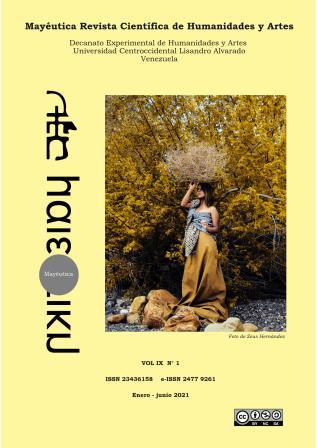Citizenship and human development: experiences of the delegation of United Nations models in the Institute La Salle of Barquisimeto
Keywords:
citizenship, civic values, democracy, human development, La Salle InstituteAbstract
Our main objective was to understand the meanings that the student members of the "Delegación de Modelos de Naciones Unidas de la Unidad Educativa Instituto La Salle Barquisimeto " attribute to civic values for the construction of citizenship from the Human Development approach. For this, the work of the Indian philosopher Amartya Sen on the empowerment of capabilities (freedoms to be and to do) of people was taken as a theoretical basis as well as the definitions of citizenship and civic values of the Spanish philosopher Adela Cortina. The study has a qualitative approach and the techniques of the focus group, the semistructured interview and the documentary review were used. As a result, two aspects linked to the process of construction of citizenship in Lasallian philosophy were identified: human quality and the sense of belonging. The students recognized significant aspects of the formation of the United Nations for All program: discourse, argumentation, criticism and the cultivation of friendship. The assessment of democracy and citizenship is closely related to the concepts analyzed.
Downloads
References
Cortina, A. (1997). Ciudadanos del Mundo: Hacia una teoría de la ciudadanía. Alianza Editorial, S.A.
Gonzales, E. (2013). Acerca del estado de la cuestión o sobre un pasado reciente en la investigación cualitativa con enfoque hermenéutico. Unipluri/versidad.13(1).6063.
http://bibliotecadigital.udea.edu.co/bitstream/10495/3313/1/GonzalesElvia_2013_estadocuestioninvestigacioncualitativa.pdf
Hermanos de las Escuelas Cristianas. (s.f.). Propuesta educativa lasallista Venezuela. BBVA Provincial.
Martínez Miguélez, M. (2006). Validez y confiabilidad en la metodología cualitativa. Paradígma. 27(2), 0733.http://ve.scielo.org/scielo.php?script=sci_arttext&pid=S101122512006000200002&lng=es&tlng=es
Nussbaum, M. (2005). El cultivo de la humanidad: una defensa clásica de la reforma en la educación liberal. Paidós.
Programa de Naciones Unidas para el Desarrollo. (2010). Nuestra Democracia. Fondo de Cultura Económica. latinamerica.undp.org/content/rblac/es/home/library/democratic_governance/nuestra_democracia.html
Sandoval, C. (1996). Investigación Cualitativa. ICFES. https://panel.inkuba.com/sites/2/archivos/manual%20colombia%20cualitativo.pdf
Sen, A. (2000). Desarrollo y Libertad. Planeta.
Organización de las Naciones Unidas para la Educación, la Ciencia y la Cultura. (1997). Educación para un Futuro Sostenible. https://es.unesco.org/themes/educaciondesarrollosostenible.
Valles, M. (1999). Técnicas Cualitativas de Investigación Social. Reflexión Metodológica y Practica Profesional. Editorial Síntesis.
Published
How to Cite
Issue
Section

This work is licensed under a Creative Commons Attribution-NonCommercial-ShareAlike 4.0 International License.





